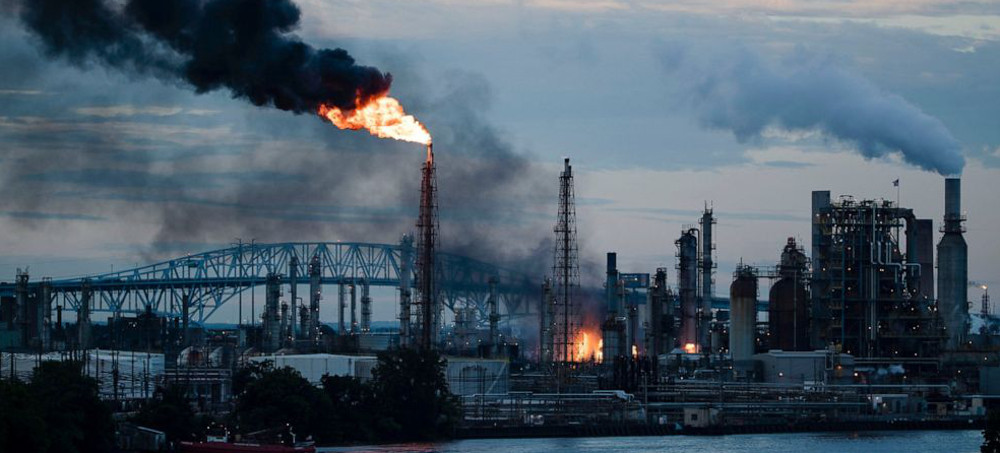US Oil Refineries Spewing Cancer-Causing Benzene Into Communities, Report Finds
Aliya Uteuova Guardian UK Analysis shows alarming level of benzene at fence-line of facilities in Texas, Louisiana, Pennsylvania, Indiana and U.S. Virgin Islands. (photo: AP)
13 May 22
Analysis shows alarming level of benzene at fence-line of facilities in Texas, Louisiana, Pennsylvania, Indiana and U.S. Virgin Islands. (photo: AP)
13 May 22
Analysis shows alarming level of benzene at fence-line of facilities in Texas, Louisiana, Pennsylvania, Indiana and US Virgin Islands
Among the 12 refineries that emitted above the maximum level for benzene, five were in Texas, four in Louisiana, and one each in Pennsylvania, Indiana and the US Virgin Islands, a new analysis by the Environmental Integrity Project revealed on Thursday.
Benzene is a known carcinogen that is highly toxic and volatile when exposed to air. Much of the excess emissions come through leaks from valves, tanks, pumps and other means that are hard to detect.
The Environmental Protection Agency estimates 6.1 million people in the US live within three miles of a refinery, with low-income people and people of color represented at rates nearly twice that of the general population.
Out of 129 operable oil refineries in 2021, 118 reported benzene concentration registered at or near the site, otherwise known as the fence-line.
Nearly half of these refineries released benzene levels above 3 micrograms per cubic meter, which the Environmental Integrity Project defines as a long-term potential health threat.
The EPA requires facilities to take action if they exceed an average 9 micrograms per cubic meter, or above “action level” emission of benzene.
“If [facilities] can’t get their benzene below the action level, year after year, we really need to see enforcement from the EPA,” said Eric Schaeffer, the executive director of the Environmental Integrity Project, in a press conference. “You need to start paying penalties when your fence-line levels persist,” he added.
Lifetime exposure to benzene at levels as low as 0.13 microgram per cubic meter could cause a risk of up to one additional cancer case for every one million exposed, according to the EPA. The higher the level of benzene, the higher the health risk.
Marathon Petroleum’s Galveston Bay refinery in Texas City had the highest average net benzene levels in 2021, according to the analysis of the self-reported data. Roughly 37,000 people live within a three-mile radius of the refinery. Among them, 62% are people of color and 47% are low-income.
“This analysis provides important insight into why the Houston area is an industrial cancer hotspot,” said Leticia Gutierrez of advocacy group Air Alliance Houston, at the press conference.
“People living near these facilities have greater [exposure] to lifetime cancer risk than any other part of the state, yet the regulatory agencies responsible for protecting us continue to approve permits for these facilities,” Gutierrez said.
Environmental Integrity Project notes that its analysis did not measure concentrations of benzene within neighborhoods adjacent to refineries, and does not reflect the actual levels of benzene within the communities.
Marathon Petroleum and the EPA did not immediately respond to a request for comment.



